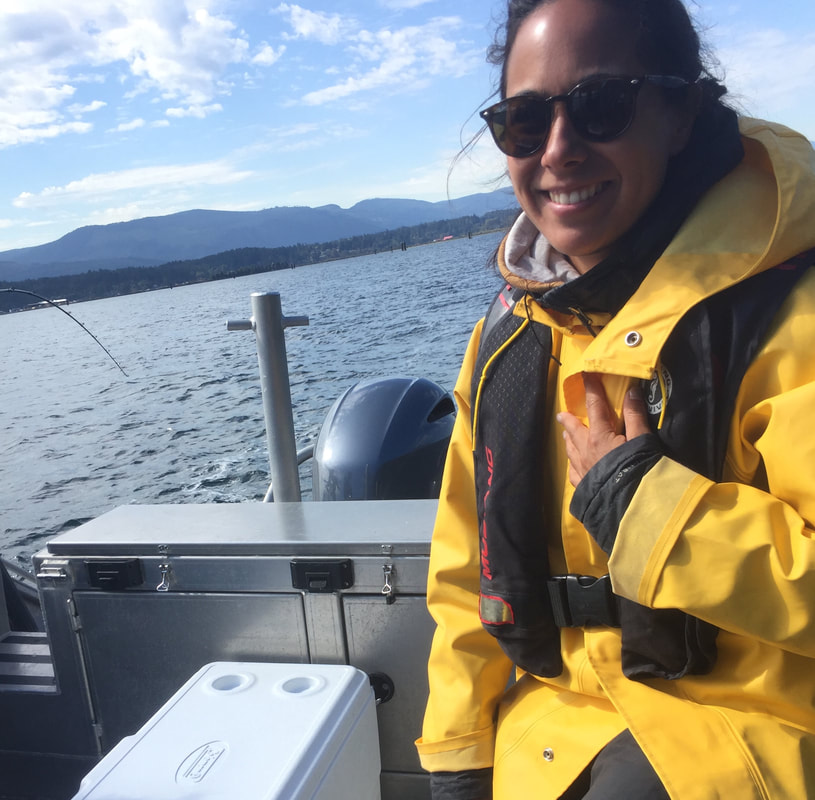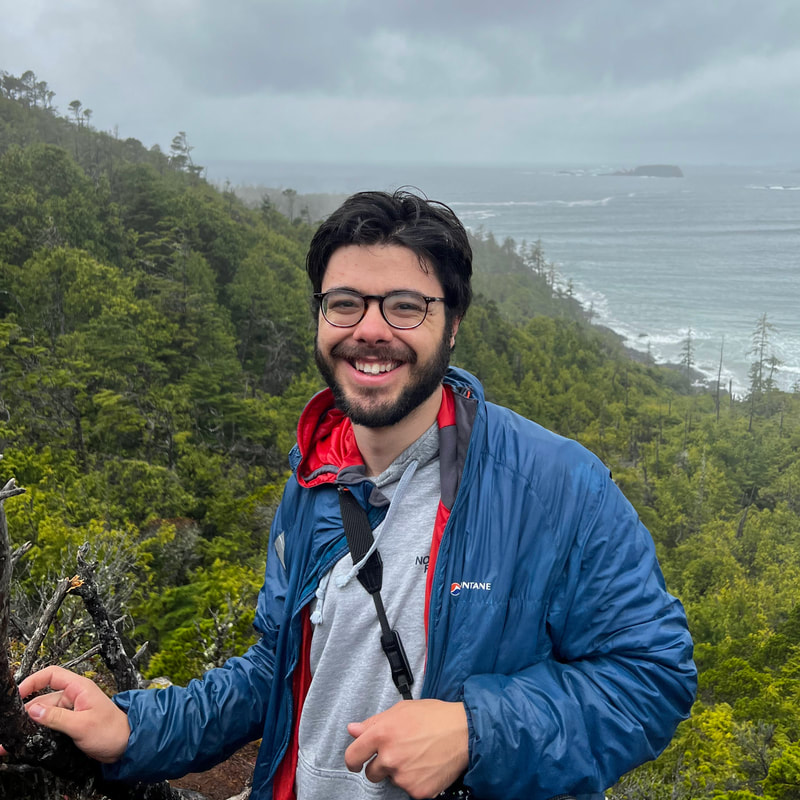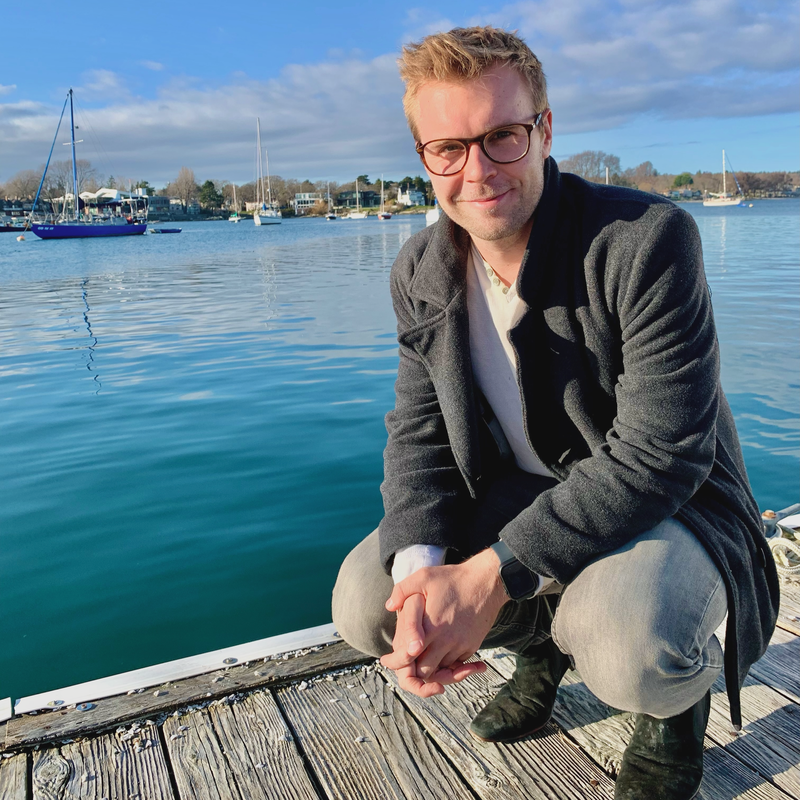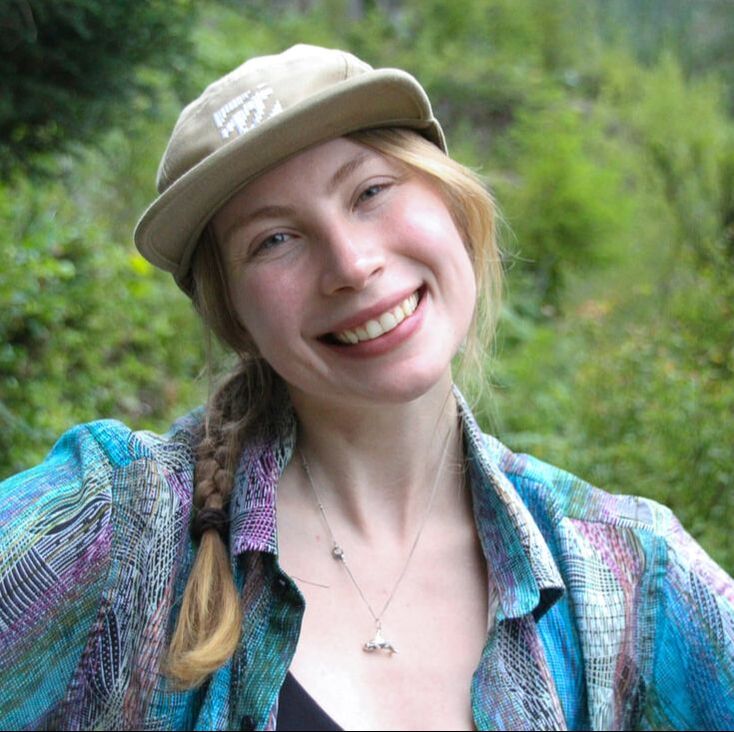Jessica QualleyJess is interested in the migration ecology of adult Pacific Herring (Clupea pallasii) in the Strait of Georgia. The majority of herring in this population migrate between spawning grounds in the Strait of Georgia and feeding grounds on the West Coast of Vancouver Island. Some herring, however, are non-migratory and exhibit a resident life history within the Salish Sea. Jess’ MSc research will investigate how juvenile growth conditions are correlated with migratory and non-migratory types within the population, as it relates to the spatial and temporal distribution of herring biomass available to the rest of the ecosystem.
|
Wesley GreentreeWesley is interested in salmon ecology and migration behaviour. Strait of Georgia Chinook Salmon exhibit differential migration, where some individuals migrate offshore while others remain resident in the Strait of Georgia. To understand the individual-level basis of distinct migration strategies, Wesley is tracking juvenile Chinook Salmon migrations with acoustic tags. He is excited to work with PSF, BCCF, and DFO on the Bottlenecks to Survival Project, which addresses important knowledge gaps about salmon survival and ecology.
|
Talen RimmerTalen's MSc research focuses on monitoring the effects of seaweed farms on underwater biodiversity and abundance, and assessing the potential risk of farm infrastructure to marine mammals. Outside of his life as a grad student, Talen has had the privilege of working with government agencies, non-profit organizations, and indigenous communities on projects related to waterway health and science communication in the Salish Sea (B.C.) and Great Barrier Reef (Queensland) regions. His other interests include coastal ecology, community-driven marine research and policy, and collaborative methods for ocean management.
|
Brittnie SprielPrior to beginning her masters, Brittnie began in the Juanes lab as a research assistant, working on the Adult Salmon Diet Program. She then transitioned to project coordinator of FishSounds Educate, an educational program offered by the FishSounds project (FishSounds.net). While she continues her involvement in the Educate project, Brittnie is now working on a thesis on the topic of marine bioacoustics. For her project, she will be testing relationships between kelp forest ecosystem state and acoustic indicators along the coast of Bamfield, BC. She will also be conducting a review of all soniferous (sound producing) invertebrates reported in scientific literature. The aim of her research is to enhance marine ecosystem assessments via non-invasive acoustic methods, and improve our understanding of kelp forest health along the Vancouver Island coastline.
|




